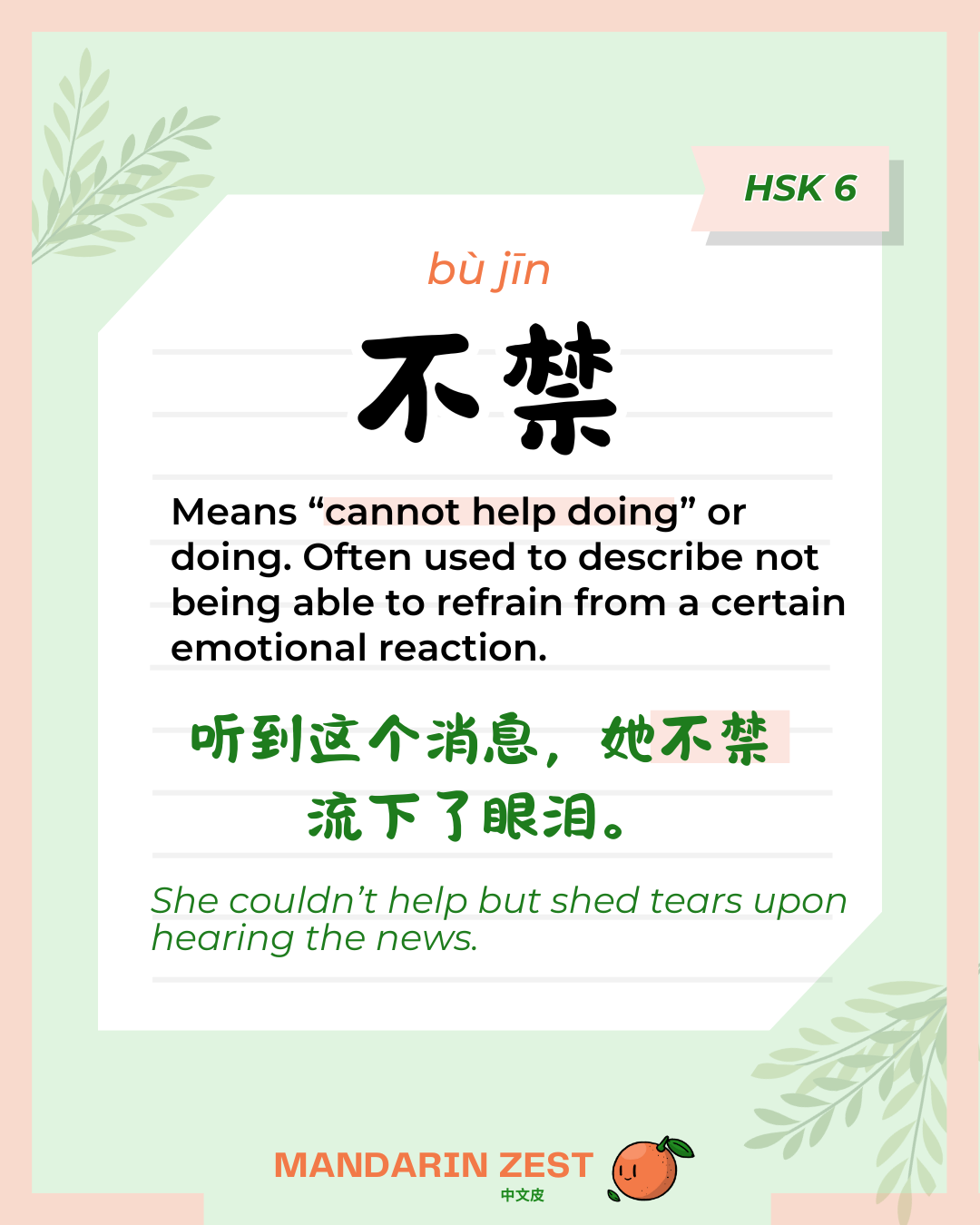不禁 (bù jīn) is a commonly used expression from the HSK 6 vocabulary list. It means "cannot help doing" or doing something involuntarily.
This expression is often accompanied by an emotional reaction, such as laughing, crying, sighing, or being surprised. It conveys the idea of being unable to refrain from reacting in such a way.
It can be used with a variety of phrases, such as 不禁失笑 (bù jīn shī xiào), which means "can't help but laugh."
不禁不由 (bù jīn bù yóu) is a fixed expression in Chinese that carries the same meaning.
Sample sentences:
听他说得那么认真,我却不禁失笑。He was speaking so seriously, but I couldn't help but laugh.
他的表演太精彩了,观众不禁鼓起掌来。His performance was so brilliant that the audience couldn’t help but applaud.
看到他那副可怜的样子,我不禁不由地心软了。Seeing how pitiful he looked, I couldn't help but feel soft-hearted.
In a Text:
我走在老家的小巷里,看到阳光照在旧墙上,闻到小时候常吃的点心味道。我不禁停下来,想起以前和奶奶一起买点心的时光。心里觉得很温暖,脸上也不禁笑了出来。
小巷 (xiǎo xiàng) – alley; small lane
As I walked through the alleys of my hometown, I saw sunlight on the old walls and smelled the pastries I used to eat as a kid. I couldn't help but stop and think about those times when I bought snacks with my grandma. It made me feel warm inside, and I couldn’t help but smile.






